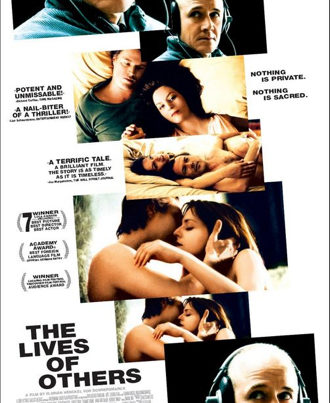Stars are important. Despite their supposedly waning influence on box office (Avatar managed perfectly well without a marquee name and Bruce Willis hasn’t carried a hit film in years) the charisma of a leading man is still a key factor in how we much we enjoy our escapism.
 Exhibit A is the inexplicable success of Gerard Butler. Despite an unpleasant on- screen persona that mostly oozes brutishness and condescension he continues to rate well with certain target markets and, as a result I still have to watch his films. The latest is a repellent revenge fantasy called Law Abiding Citizen in which Butler gets to smirk his way through several remote-control murders while supposedly locked away in solitary confinement. How does he do it, we are supposed to ask.
Exhibit A is the inexplicable success of Gerard Butler. Despite an unpleasant on- screen persona that mostly oozes brutishness and condescension he continues to rate well with certain target markets and, as a result I still have to watch his films. The latest is a repellent revenge fantasy called Law Abiding Citizen in which Butler gets to smirk his way through several remote-control murders while supposedly locked away in solitary confinement. How does he do it, we are supposed to ask.
Butler is Clyde Shelton, an inventor and family man whose family is randomly targeted by two low-life home invaders. They kill his wife and child (but inexplicably leave him alive as a witness) but hot shot Assistant DA (Jamie Foxx) is worried about his win-loss ratio and cuts a deal that saves one of the perps from Death Row. Shelton is upset about the supposed lack of justice and hatches an eight year plot to teach everyone involved (including the entire Philadelphia city administration and the Pennsylvania justice system) a lesson.
It turns out – handily for the preposterousness about to unfold – that he’s not just an inventor with a couple of patents, he’s a certified military-technology-developing killing machine. “If he wants you dead, you’re dead”, says a spook in an underpass.
Law Abiding Citizen is, of course, complete immoral rubbish masquerading as some kind of modern-day morality tale. As the ridiculous plot unravels, and the body count of the innocents grows, you are left to conclude that everyone involved has left their humanity behind while they go in search of the lowest common denominator pay cheque.
Butler adds nothing to his already fairly dismal cv, Foxx has nothing to grab hold of at all, writer Kurt Wimmer confirms his hack credentials (The Recruit, Ultraviolet) but director F. Gary Gray (The Italian Job) does his best to generate some tension that the film doesn’t really deserve.
 The jury is still out on hot shot Robert Pattinson’s movie star credentials, although his new film Remember Me showcases a more crumpled version of his trademark eyebrow-focused intensity. I’m still waiting for someone (anyone) to become the new Steve McQueen or Paul Newman and all of these beautiful boy actors fall so short, and develop so badly (think Tobey Maguire) but Pattinson might make something of himself if he can ever get some activity to register behind his eyes.
The jury is still out on hot shot Robert Pattinson’s movie star credentials, although his new film Remember Me showcases a more crumpled version of his trademark eyebrow-focused intensity. I’m still waiting for someone (anyone) to become the new Steve McQueen or Paul Newman and all of these beautiful boy actors fall so short, and develop so badly (think Tobey Maguire) but Pattinson might make something of himself if he can ever get some activity to register behind his eyes.
Remember Me sets itself some big challenges. It is set in New York in the summer of 2001 and so can’t possibly be about anything but 9/11 and yet it manages to tread the path to that fateful day quite subtly – until the end when it loses the plot and jumps right in the deep end. Pattinson is the brawling, off-the-rails son of a successful Irish-American businessman (Pierce Brosnan). His beloved brother took his own life right years before and he (and the family) have never gotten over it. He falls for the daughter (newcomer Emilie de Ravin) of a gruff Brooklyn cop (played by Chris Cooper) who also has a tragedy in her past.
I was all prepared to give this film a good review until it lost its nerve at the end and I wanted to throw things at the screen. Still, if I haven’t given too much of the plot away, you might get something out of it – I’m sure there is something there to get.
 There’s been a little flurry of European WWII movies recently, little countries like Denmark (Flame and Citron) and Holland (Black Book) finally telling untold stories of resistance to the Nazis. It’s the turn of Norway with the big budget Max Manus, the story of one of their greatest heroes (played with élan by Aksel Hennie). Manus was a dashing resistance fighter and saboteur whose mental state was ultimately severely damaged by the losses he saw and the brutality of the fighting.
There’s been a little flurry of European WWII movies recently, little countries like Denmark (Flame and Citron) and Holland (Black Book) finally telling untold stories of resistance to the Nazis. It’s the turn of Norway with the big budget Max Manus, the story of one of their greatest heroes (played with élan by Aksel Hennie). Manus was a dashing resistance fighter and saboteur whose mental state was ultimately severely damaged by the losses he saw and the brutality of the fighting.
It’s totally fair enough that these stories are getting told after all this time, although your enjoyment of the film will ultimately depend on how Norwegian you are. There’s not much there to interest the rest of us.
Printed in Wellington’s Capital Times on Wednesday 17 March, 2010



